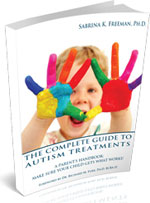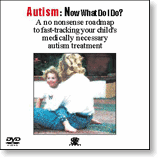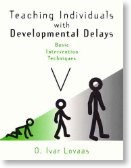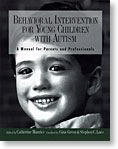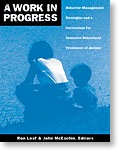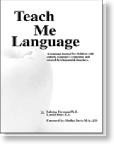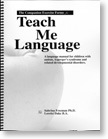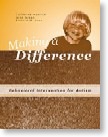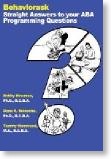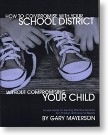Overdue: A Specialty in Autism Treatment
03/10/11 16:16
When a child is first diagnosed, and parents are told early intervention is the key, the frantic search for early intervention begins! This fuzzy terminology itself is problematic because it is not “early intervention” that is key; rather, it is “early intensive behavioral intervention” that is the answer. The savvy parents figure this out within the first few months, if not earlier.
Then begins the quest to find a competent early interventionist. Here’s where parents often get into trouble. Anyone can put out their shingle and call themselves a behaviorist or an autism interventionist; however, not all behavioral interventionists are created equal. There are bona fide autism treatment professionals and then there are the pretenders.
What have parents done to attempt to protect their children? Some have essentially branded home-based intensive behavioral treatment by using the term “The Lovaas Method” after the famous psychologist who first published his impressive intensive behavioral treatment results in 1987. Parents knew that if they used behaviorists who studied under Lovaas, they would be more likely to access autism treatment using an updated behavioral autism treatment protocol based on the research of Dr. Lovaas.
The branding of intensive behavioral treatment is considered controversial by some. There are many competent behaviorists who also use a modification of the protocol that Lovaas developed; however -- and importantly -- they do not work under supervision of LIFE, which is the organization that continues Lovaas’ legacy. So... what’s a professional to do, and what’s a parent to do? The issue of finding a bona fide behavioral autism treatment professional needs to be fixed!
Here’s how we solve it.
There must be a special certification of behaviorists who have extensive expertise in autism, and have established credentials for the treatment protocol with the most science behind it in terms of autism. These cannot be generic behaviorists. Put simply, someone who can help an adult stop smoking does not automatically have the expertise to program an intensive behavioral treatment program for children with autism.
About a decade ago, I spoke at length with both the CEO and a board member of the Behavior Analyst Certification Board (BACB). I explained this problem. They told me that there was talk of creating a specialty for autism; however, it would take a long time and it was complicated. We’re all still waiting...
We need the following:
1) Those who are working directly with the treatment protocol designed, tested, and repeatedly replicated by Lovaas in his research, need to be part of this process. They need to work directly with the BACB to create an autism treatmet specialty and it needs to be done yesterday!
2) The BACB need to design the specialty to make sure that all those behaviorists practicing Positive Behavior Support are barred from claiming that they offer bona fide Behavioral Treatment programs for children with autism, since what they offer is philosophy rather than science.
Why should the Behavior Analysts care about establishing a specialty for autism? It’s important because there are behaviorists who are working on basic problems such as toilet training, and failing. Over the last forty years, the field of behaviorism has progressed beyond these types of problems, yet there are parents of children with autism working with certified behavior analysts who are unable to solve autism related problem in a timely fashion.
In short, behavior analysts are getting a bad name in the autism community. Incompetent behaviorists will lead to decreased reliance upon their services. Ultimately, this is going to harm children with autism, because the literature and government health agencies have made it abundantly clear that intensive behavioral treatment is best practices for children with autism.
Then begins the quest to find a competent early interventionist. Here’s where parents often get into trouble. Anyone can put out their shingle and call themselves a behaviorist or an autism interventionist; however, not all behavioral interventionists are created equal. There are bona fide autism treatment professionals and then there are the pretenders.
What have parents done to attempt to protect their children? Some have essentially branded home-based intensive behavioral treatment by using the term “The Lovaas Method” after the famous psychologist who first published his impressive intensive behavioral treatment results in 1987. Parents knew that if they used behaviorists who studied under Lovaas, they would be more likely to access autism treatment using an updated behavioral autism treatment protocol based on the research of Dr. Lovaas.
The branding of intensive behavioral treatment is considered controversial by some. There are many competent behaviorists who also use a modification of the protocol that Lovaas developed; however -- and importantly -- they do not work under supervision of LIFE, which is the organization that continues Lovaas’ legacy. So... what’s a professional to do, and what’s a parent to do? The issue of finding a bona fide behavioral autism treatment professional needs to be fixed!
Here’s how we solve it.
There must be a special certification of behaviorists who have extensive expertise in autism, and have established credentials for the treatment protocol with the most science behind it in terms of autism. These cannot be generic behaviorists. Put simply, someone who can help an adult stop smoking does not automatically have the expertise to program an intensive behavioral treatment program for children with autism.
About a decade ago, I spoke at length with both the CEO and a board member of the Behavior Analyst Certification Board (BACB). I explained this problem. They told me that there was talk of creating a specialty for autism; however, it would take a long time and it was complicated. We’re all still waiting...
We need the following:
1) Those who are working directly with the treatment protocol designed, tested, and repeatedly replicated by Lovaas in his research, need to be part of this process. They need to work directly with the BACB to create an autism treatmet specialty and it needs to be done yesterday!
2) The BACB need to design the specialty to make sure that all those behaviorists practicing Positive Behavior Support are barred from claiming that they offer bona fide Behavioral Treatment programs for children with autism, since what they offer is philosophy rather than science.
Why should the Behavior Analysts care about establishing a specialty for autism? It’s important because there are behaviorists who are working on basic problems such as toilet training, and failing. Over the last forty years, the field of behaviorism has progressed beyond these types of problems, yet there are parents of children with autism working with certified behavior analysts who are unable to solve autism related problem in a timely fashion.
In short, behavior analysts are getting a bad name in the autism community. Incompetent behaviorists will lead to decreased reliance upon their services. Ultimately, this is going to harm children with autism, because the literature and government health agencies have made it abundantly clear that intensive behavioral treatment is best practices for children with autism.
